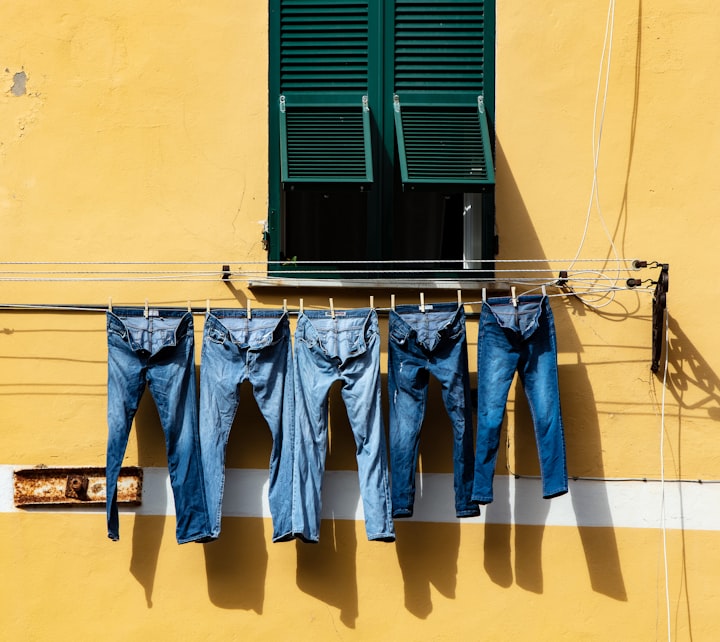An Easy Way To Create Your Emergency Fund
Shift Into Automatic

You've heard it before; put money away for emergencies.
One thing the pandemic has reinforced is the importance of having savings. You never know when something is going to disrupt your ability to pay your bills.
It's just so hard to get organized.
It's hard to find a way to put money away when you're just starting out. There are so many other things you could use it for.
Deep down, you know an emergency fund is a good idea, but you don't make much money. People tell you to save a little bit but you're struggling right now.
We all know how hard it can be to make a plan and stick to it. Finding a way that works for you is key to making it happen.
Shit Happens.
I still remember the sinking feeling when my car broke down and I didn't have the money to fix it. I ended up using my credit card, which was costly in the end.
More on credit cards later.
We've all been there. Juggling work and home life while trying to pay your bills is difficult and it seems there is never anything left at the end of the month to put into savings.
The book "The Automatic Millionaire" by David Bach really clicked with me the first time I read it.
Money in the bank.
What would it be like to feel better about your money without the daily pressure of your debts? It's so hard when you have to use your willpower to pay debts or save money. Reading this book will shift your views about money.
The title might make you think it's about becoming rich, but it contains several key strategies you can use to get your savings going. For me, it's about earning enough for what you need.
It's not how much you make, it's what you keep.
Many people think that getting rich is making more money. We all know the more we earn the more we tend to spend, which makes it really hard to save.
This book focuses on shifting your mindset toward spending less than you earn and saving the difference.
The Latte Factor
One thing David Bach is famous for is the latte factor. He says you could save money by doing one small thing each day. He asks you to look at eliminating the small daily purchases you make.
Everyone has a latte factor. You might be buying magazines, or eating out. Finding your latte factor creates a habit of slowing down your spending, especially the small amounts. It makes you look at what you do with your money every day.
Make it Automatic
Trying to save and spend less can be difficult, especially if you are trying to break some bad spending habits. Remembering to put aside a bit of money each month is hard. When you start with zero savings, it feels like you'll never get anywhere. You don't have time to look at your finances every month. It has to be easy or it won't work.
You don't have to work so hard.
The Automatic Millionaire suggests you bypass yourself by making it automatic. I was inspired to set up a savings account to pay myself first, and once I saw how well it worked, I shifted more and more of my finances to automatic.
Automatic is a great way to save and pay off debt and this book is a great reminder.
'Going automatic' removes the need to make the same decision again and again. The first step is deciding you want to save a certain amount monthly. Then you set it up automatically.
Your goal may not to become a millionaire, but the ideas in this book can get you there if you put them into use early enough. You might feel like it's too late for you. Don't worry, this book will help you kick start your savings.
The good news is there is a quick and easy way to start. It takes about 10 minutes.
You only have to do this once.
You need online banking. Set up a chequing account and a savings account.
For this example, I'm assuming your pay is automatically deposited into your chequing account. I'm also assuming you get paid every other Friday. (biweekly)
- Go online and click on your chequing account.
- Select pay bills and transfer funds.
- Choose transfer funds and set up a transfer for a small amount ($15 for example). Feel free to use a different amount, but start small.
- When: for your first transfer, choose the day after your next pay date.
- Frequency: choose biweekly. This sets up a transfer for every other Friday, to match the day your paycheque is deposited in your bank account.
- Select 50 times, so the transfer will keep happening until you change it.
- Then click save or submit.
Now forget about the savings account.
If you don't look at it, you won't spend it.
It's that simple. You've chosen a small enough amount that it won't be missed, and if you leave it alone, it will slowly accumulate into a decent emergency fund.
Go Automatic. It's worth it.
This post contains an affiliate link. If you use this link to buy something, I may earn a commission. Thanks.
If you'd like to connect, find me on Twitter, Wordpress, and Quora.
If you enjoyed this story, send me a tip so I can write another one.
Or share it on social media. Your recognition means a lot to me.
About the Creator
Tree Langdon
Get an idea, a new word and a question.
For more, read my bio here.






Comments
There are no comments for this story
Be the first to respond and start the conversation.